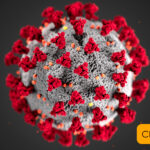Healthy People 2030
(Washington, D.C. – September 30, 2020)
On August 18, 2020, the U.S. Department of Health and Human Services (HHS) released Healthy People 2030 – the 5th iteration of the nation’s 10-year plan that sets data-driven objectives and targets to improve health and well-being in the United States. Updated every decennial since 1980, Healthy People 2030 builds on the knowledge gained and lessons learned to address the nation’s most critical public health priorities and challenges.
Healthy People 2030 includes 355 objectives in alignment with five overreaching goals. These goals include:
- Attain healthy, thriving lives and well-being free of preventable disease, disability, injury, and premature death.
- Eliminate health disparities, achieve health equity, and attain health literacy to improve the health and well-being of all.
- Create social, physical, and economic environments that promote attaining the full potential for health and well-being for all.
- Promote healthy development, healthy behaviors, and well-being across all life stages.
- Engage leadership, key constituents, and the public across multiple sectors to take action and design policies that improve the health and well-being of all.
Healthy People 2030 also includes prioritizing 10-year measurable targets for objectives related to the social determinants of health – which include economic stability, education, health care access, neighborhoods and the built environment, and social and community environments. For example, related to economic stability and food insecurity, HHS wants to reduce household food insecurity by 5 percent over the next 10 years (11.1 percent of households were food insecure in 2018).
“Healthy People 2030 aligns with many of Trust for America’s Health’s priorities around health conditions such as diabetes and obesity; health behaviors such as vaccination and drug and alcohol use; population-level health for groups such as older adults; systems such as public health infrastructure and preparedness for emerging public health threats like COVID-19; and the social determinants of health,” said John Auerbach, President, and CEO at Trust for America’s Health.
“It provides a framework of measurable objectives to evaluate the change that needs to occur to achieve optimal health and well-being for every person and community. COVID-19 is the most current example that demonstrates the longstanding disproportionate health and economic impacts faced by Black, Indigenous, and people of color along with other marginalized communities. Together, public health must work with multiple sectors to advance equitable policies that address these social and economic disparities, and work towards achieving the goals of Healthy People 2030.”
For more information, visit Healthy People 2030.

